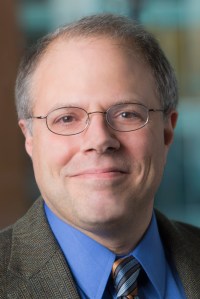Today, for the first time in 30 years, the U.S. Supreme Court will consider a constitutional challenge to the practice of legislative prayer. Specifically, in the case, Town of Greece v. Galloway, the court will consider whether a local town board’s practice of beginning its monthly meetings with a prayer violates the constitution.
In 2008, two residents of Greece, N.Y., sued the town, complaining that beginning town board meetings with a prayer violated the First Amendment’s prohibition of the establishment of religion (the Establishment Clause) because it promoted Christianity and, by definition, excluded those attending the meetings who were not Christian. In 2012, the 2nd U.S. Circuit Court of Appeals agreed with this argument, ruling that the practice violates the Establishment Clause.
Here are five facts about the case.
11. The Supreme Court has upheld the practice of legislative prayer before. Thirty years ago, the high court ruled in Marsh v. Chambers that the Nebraska legislature’s practice of beginning its sessions with a prayer did not violate the constitution. Specifically, the high court pointed out that because legislative prayer has a long and continuous history in the United States, it should not be seen as a threat to the Establishment Clause unless it promotes or denigrates a particular faith tradition or religious group.
22. The situation in the current case may be different than Marsh because it involves the possibility of coercion. The 1983 Marsh case involved prayer delivered in the Nebraska legislature, where members of the public and lawmakers were free to come and go during the invocation. Today’s case involves prayer in the seat of a local government, which is vested with the town’s executive, legislative and administrative authority. Anyone who has business with the town must come to the board’s monthly meeting and, therefore, would be present for the prayer.
33. The Obama administration has urged the court to uphold prayer in town meetings. As a result of the Affordable Care Act’s contraception mandate and other issues, social conservatives and others have accused the White House of being unfriendly to religion. But, earlier this year, the administration submitted an amicus or “friend of the court” brief, arguing that the court should reaffirm the Marsh ruling and that the Greece town board’s practice of opening with a prayer falls well within the contours of the Marsh decision and thus is constitutional.
44. Legislative prayer has been in existence since before the founding of the American republic. The first Continental Congress in 1774 appointed a chaplain to lead it in prayer. The first U.S. Congress, which drafted the religion clauses of the First Amendment, hired chaplains to pray before the opening of each session of the Senate and the House of Representatives, a practice that remains in place today. Today, according to the National Conference of State Legislatures, 48 states have regular prayer in at least one legislative chamber.
55. The Supreme Court’s ultimate decision in Galloway is likely to hinge on how it interprets its prior ruling in Marsh. The court could interpret Marsh very broadly, making virtually all legislative prayer constitutional except in extreme cases, such as a prayer that specifically denigrates another religious group. Or the court could read Marsh much more narrowly, not only striking down Greece N.Y.’s prayer policy but mandating that legislative prayer in general only be allowed if it is non-sectarian and if it takes place at times when attendance is not mandatory.
Read a more detailed analysis of the Supreme Court case here.



